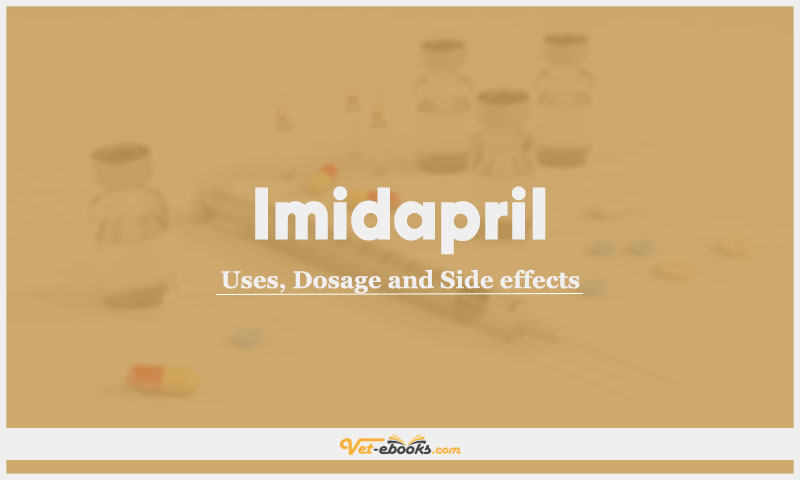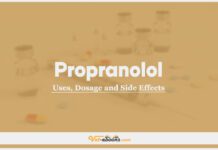Imidapril In Dogs & Cats: Uses, Dosage and Side Effects

Overview
- Inhibitor of angiotensin-converting enzyme (ACE).
- The overall impact is a decrease in preload and afterload via vasodilation and arteriodilation, a decrease in salt and water retention due to decreased aldosterone synthesis, and suppression of angiotensin-aldosterone-mediated cardiac and vascular remodelling.
- In the kidney, efferent arteriolar dilatation can reduce intraglomerular pressure and hence glomerular filtration.
- Proteinuria may be reduced as a result of this.
Uses of Imidapril
- Management of congestive heart failure in dogs caused by mitral regurgitation or dilated cardiomyopathy.
- There is no information available on cats.
- When heart failure is present, it is frequently taken in conjunction with diuretics because it is most effective in these instances.
- Can be used with other medications to treat heart failure (e.g., pimobendan, spironolactone, digoxin).
- Management of proteinuria caused by chronic renal insufficiency, glomerular diseases, and protein-losing nephropathies.
- In hypertension, it may lower blood pressure.
Dose of Imidapril in Dogs and Cats
Dogs:
0.25 mg/kg p.o. q24h (for dogs weighing >4 kg).
Cats:
0.5 mg/kg p.o. q24h (anecdotal dose; no data available).
Drug Dosage Calculator
You Should Give:
Side Effects of Imidapril in Dogs and Cats
- Hypotension, hyperkalaemia, and azotaemia are all possible side effects.
- If there are signs of hypotension (weakness, disorientation), the dosage should be lowered.
- Anorexia, vomiting, and diarrhoea are uncommon.
- In healthy dogs, doses of up to 5 mg/kg/day have been well tolerated.
- It is not suggested for breeding, pregnant, or breastfeeding pigs because its safety has not been shown.
- The safety of imidapril in dogs weighing less than 4 kg has not been demonstrated.
Contraindications of Imidapril in Dogs and Cats
- Do not use in animals with acute renal failure, congenital heart disease, haemodynamically relevant stenoses (e.g. aortic stenosis), obstructive hypertrophic cardiomyopathy or hypovolaemia.
Some Notes:
- Potassium-sparing diuretics like spironolactone or potassium supplements can cause hyperkalemia.
- However, spironolactone and ACE inhibitors seem safe to use together.
- NSAIDs may exacerbate nephrotoxicity and impair clinical effectiveness.
- Diuretics, vasodilators (anaesthetics, antihypertensives), and negative inotropes (beta-blockers) can cause hypotension.
Tip
Do You Want To Increase Your Veterinary Knowledge and Practical Skills?
You Can Now Browse and Download +3000 Books For Veterinary Professionals & Students Online.
Download Veterinary Books




















